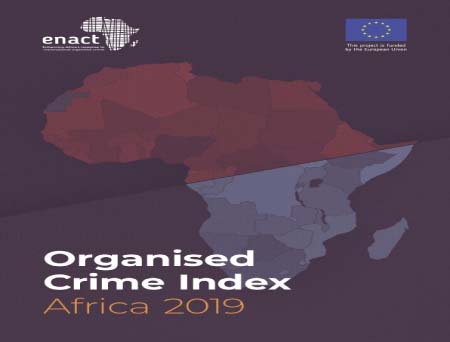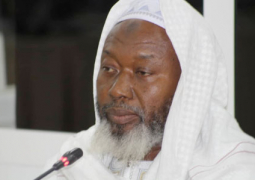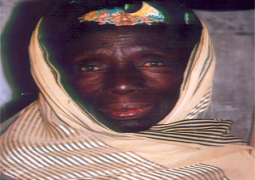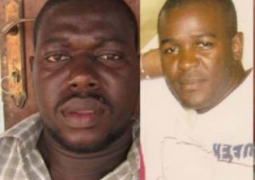
Tuesday 22nd October 2019 Issue
Although,
the issue of organised-crime is less prominent in The Gambia than in other
nations in Africa, it nevertheless presents a serious issue for the country and
its citizens.
Criminal
networks that benefit from the aid of corrupt public officers predominantly run
organised crime in The Gambia. The cocaine market is reported to have a severe
impact on nearly all parts of society, as Gambia is a significant
trans-shipment point for the trafficking of the drug, with state officials
working in collusion with organised-crime groups.
The
Gambia is also considered a source and destination country for forced labour
and sex trafficking, with the networks that control the latter being
international in their operations.
In
terms of resilience, Gambia is ranked 17th in Africa, performing notably better
than the continental average.
The
positive score reflects its significant progress in anti-corruption initiatives
in the post-Jammeh era, aided to a significant degree by the strength of
non-state actors operating in the country, and its modest ability to control
its borders. However, there is significant scope for improvement with regard to
measures of organised crime prevention and support for victims and witnesses,
without which, organised criminal activity will continue to persist.
Criminal
Markets
The
most pervasive criminal markets in Gambia are for human trafficking and flora
crimes, which both score 7.
The
country is both a source and destination market for trafficked persons. The
most pervasive forms of human trafficking in the country are forced labour and
sexual exploitation, while victimisation of young boys in the latter is
increasing. It has been observed that sex trafficking networks use European and
Gambian travel agencies to promote child-sex tourism. Sex traffickers
increasingly host child-sex tourists in private residences outside the
commercial tourist areas of the capital, Banjul, making the crime harder to
detect.
In
Gambia, flora crimes, in particular timber traffickingwas rampant under
President Jammeh. However, the new government has shown considerable political
will to reduce trafficking in illicit timber and to cooperate with neighboring
Senegal in the fight against this activity. Nevertheless, cross-border illegal
logging and smuggling persists. Most of the rosewood exported from the country
appears to be of Senegalese origin, with trafficking routes extending along
Gambia’s southern borders with Senegal’s Casamance province, and supply chains
running from Guinea-Bissau, through Casamance, and Banjul, where the timber is
exported to Asian end markets.
Past
network analyses suggest complicity between Casamance-based insurgency groups,
as well as Bissau-Guinean political actors seeking to exploit the country’s
widespread political volatility by generating revenue through the illicit
timber trade.
The
drugs markets in Gambia are established, given the country’s role as a transit
state in the transnational trade. The country is a significant trans-shipment
point for cocaine being trafficked from South America to European markets.
It
is one of the main countries for cocaine trafficking in Africa, and huge
volumes of cocaine shipped by sea and air have been seized. State corruption is
a significant contributor to the trafficking environment, as drug-trafficking
groups act with impunity in the country, able to use Gambia as a regional
staging point for receipt and onward shipping of large volumes of cocaine.
There is also a growing domestic market for cocaine consumption, led in part by
the increase in tourism development, and the consequential influx of European
tourists.
According
to the country’s Interior Minister, cannabis is the most problematic drug in
Gambia and is responsible for most of the drug-related crimes committed in the
country. The government currently opposes the decriminalisation of cannabis use
and confiscates over a metric ton of marijuana every year. Young people are the
demographic group that most consume cannabis.
Gambia
also acts as a transit point for heroin enroute to Europe. The volume of heroin
trans-shipping via Gambia is increasing and the government has indicated that
it perceives this growing market as a national threat.
Criminal
Actors
State-embedded
actors are the most influential individuals in the organised-criminal activity
taking place in Gambia. Corruption is rife in the country, particularly within
the law-enforcement bodies. It is state complicity in the Gambia that allows
drug trafficking to persist, as the groups operating in the market act with
impunity.
Criminal
networks are similarly influential, driving the major criminal markets in the
Gambia, including the drugs markets, the illicit flora market and the human
trafficking market.
Ranking
17th in Africa, Gambia’s resilience to organised crime is greater than the
majority of countries on the continent. The government does not appear to have
made countering organised crime a priority, although it has made concerted
efforts to reduce corruption within the state apparatus. Nevertheless, much
more needs to be done to address corruption in order to put an end to state
involvement in criminal activity. The country does, however, have numerous laws
pertaining to organised crime and has established a financial intelligence
unit.
As
for the judicial and detention system in Gambia, they are fairly competent
compared to those of other African nations. The country has a functional
judiciary, with a history of sourcing judges from other African countries to
enhance its effectiveness. There have also been ongoing efforts under President
Barrow to sanitise the country’s law-enforcement agencies and curtail the
corruption that undermines their effectiveness. Given the small geographical
size of the country, Gambia’s borders are easier to control than those of many
other African states.
The
border is managed by the Immigration Border Patrol Unit with the support of the
sister services. The country is also working with the IOM, the UN migrations
unit, to build a national border-control system. Under the present
administration, Gambia’s relationship with neighbouring countries, Senegal in
particular, has improved.
Press
freedom in Gambia is at a critical juncture, following the change in power from
former president Yahya Jammeh to Barrow. The Media Legal Defence Initiative
recently achieved successes at the ECOWAS Court, challenging the laws used to
silence and intimidate journalists in the Gambia. The judgment recognised that
the criminal laws on libel, sedition and false news disproportionately
interfere with the rights of Gambian journalists, and the court directed that
the Gambia should ‘immediately repeal or amend’ these laws in line with its
obligations under international law.
Overall,
until 2016, Jammeh emasculated civil society organizations in the country,
including the media, but there is greater freedom under the current government.
However, there are still major deficiencies in victim and witness support in
Gambia. There is no witness protection programme in the country, and due to a
lack of policy appetite from the government, very little support is offered to
victims of organised crime, in particular to victims of human trafficking.




